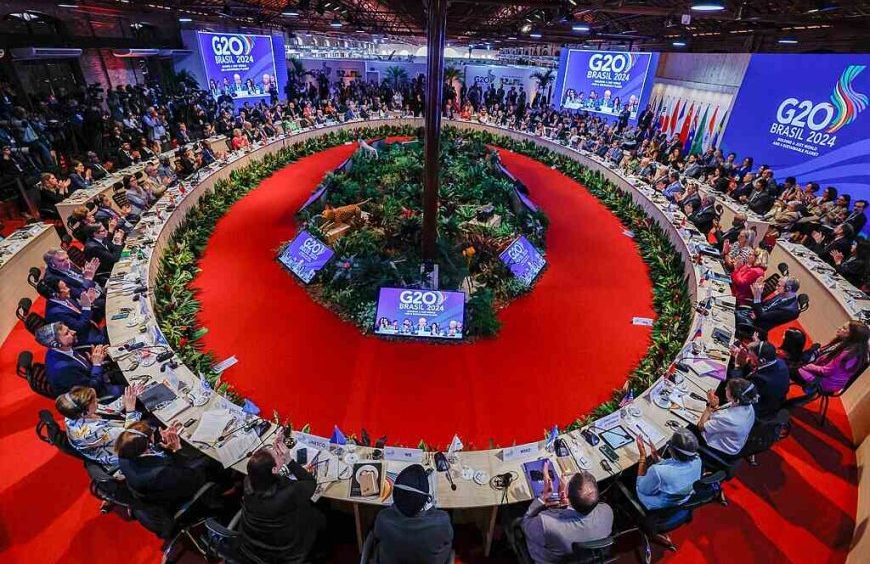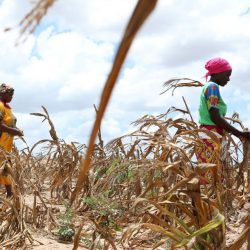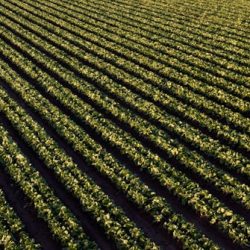Johannesburg: As the only African nation holding a coveted seat at the G20 table, South Africa finds itself in a unique position of power and responsibility. With the presidency of the influential global grouping resting in its hands until the close of 2025, the nation has a golden opportunity to champion the urgent cause of food security across the African continent.
The G20, a powerhouse representing 85% of global GDP and a staggering two-thirds of the world’s population, operates through a rotating presidency. While much of its agenda carries over year after year, the incumbent nation wields considerable influence in shaping its priorities. For agriculture, South Africa has laid out a compelling four-pronged strategy: bolstering food and nutrition security, empowering women and youth in agrifood systems, fostering agricultural innovation and technology transfer, and building climate resilience for sustainable food production.
These ambitions resonate deeply with the struggles faced by many African nations long plagued by food insecurity and lagging agricultural productivity. Wandile Sihlobo, a Senior Fellow in the Department of Agricultural Economics at Stellenbosch University, argues that South Africa is strategically placed to leverage its G20 presidency to support its continental neighbours in these critical areas.
“South Africa’s main focus as president of the G20 should be on four things: sharing knowledge about climate-smart agricultural practices and improving food security through increased trade are key. Increasing South Africa’s fertiliser manufacture and trade with the rest of the continent, and nurturing agriculture incubators between African countries and developed nations, are also crucial,” states Sihlobo.
The G20’s engine room consists of various working groups and task forces. Under South Africa’s leadership, a dedicated task force on food security has been established. While this body has the potential to advocate for job creation as a means to enhance purchasing power and thus food security, Sihlobo emphasizes the critical need to focus on boosting agricultural productivity itself. He points out that growth in the agricultural sector is significantly more effective at reducing poverty than equivalent growth in other industries. Increased food supplies, he argues, directly translate into reduced poverty, food insecurity, and malnutrition, disproportionately benefiting the poorest segments of society.
To truly move the needle, Sihlobo outlines four key interventions that the G20’s food security task force should prioritize.
Firstly, he calls for a robust initiative focused on sharing knowledge about climate-smart agricultural practices. These innovative farming methods are crucial for mitigating the devastating impact of climate-related disasters, a particular vulnerability for the African continent. “For African agriculture to take off, governments must set up co-ordinated policies on how to respond to disasters. These responses must include everything African countries need to mitigate against climate-related disasters, adapt to climate change, and recover quickly when disasters hit,” Sihlobo asserts. He believes the G20, under South Africa’s guidance, could be the prime platform to champion this vital message.
Secondly, Sihlobo stresses the importance of improving food security in Africa through enhanced trade. South Africa’s existing preferential trade agreements with several G20 economies provide a valuable foundation. He argues that maintaining open trade within the G20 is in everyone’s interest, allowing for the purchase and sale of agricultural produce at more affordable prices. While less productive agricultural sectors in Africa might not immediately reap the full benefits, Sihlobo believes the long-term positive ripple effects across the continent are undeniable.
Thirdly, South Africa should continue to push for discussions aimed at bolstering fertiliser manufacturing and trade within Africa. The stark reality is that sub-Saharan African countries face significant challenges in accessing and utilizing fertilisers, a crucial ingredient for increasing food production and reducing hunger. Sihlobo emphasizes the need to link fertiliser discussions with investments in essential infrastructure like roads and ports. “It is one thing to have fertilisers available, but moving them to areas of farming is difficult in some countries, and increases the costs for farmers,” he explains. He advocates for driving localised fertiliser production on the continent to cushion against global price shocks and make it more affordable for vulnerable nations.
Finally, Sihlobo proposes that South Africa should host agricultural incubators in collaboration with both developed and developing countries. These hubs would serve as crucial platforms for sharing knowledge on cutting-edge agricultural technologies and investment opportunities, encompassing mechanical and IT-related innovations that can transform farming practices and agricultural value chains.
“Most G20 countries are advanced in the agricultural and food security work area. Knowledge sharing would benefit Africa. Knowledge sharing should go beyond technology and include best policy practices. Insights about how South Africa, Australia, the European Union and Canada, to name a few, progressed in agriculture would be valuable,” Sihlobo emphasizes.
He concludes that South Africa’s G20 presidency presents a critical window of opportunity for Africa. By defining a clear and impactful agenda, drawing lessons from successful nations like Brazil, and charting a future-ready, inclusive, and nature-sensitive path, South Africa can play a pivotal role in advancing food security and agricultural prosperity across the continent. The world will be watching to see if the “Rainbow Nation” can indeed lead the way in feeding a continent.




